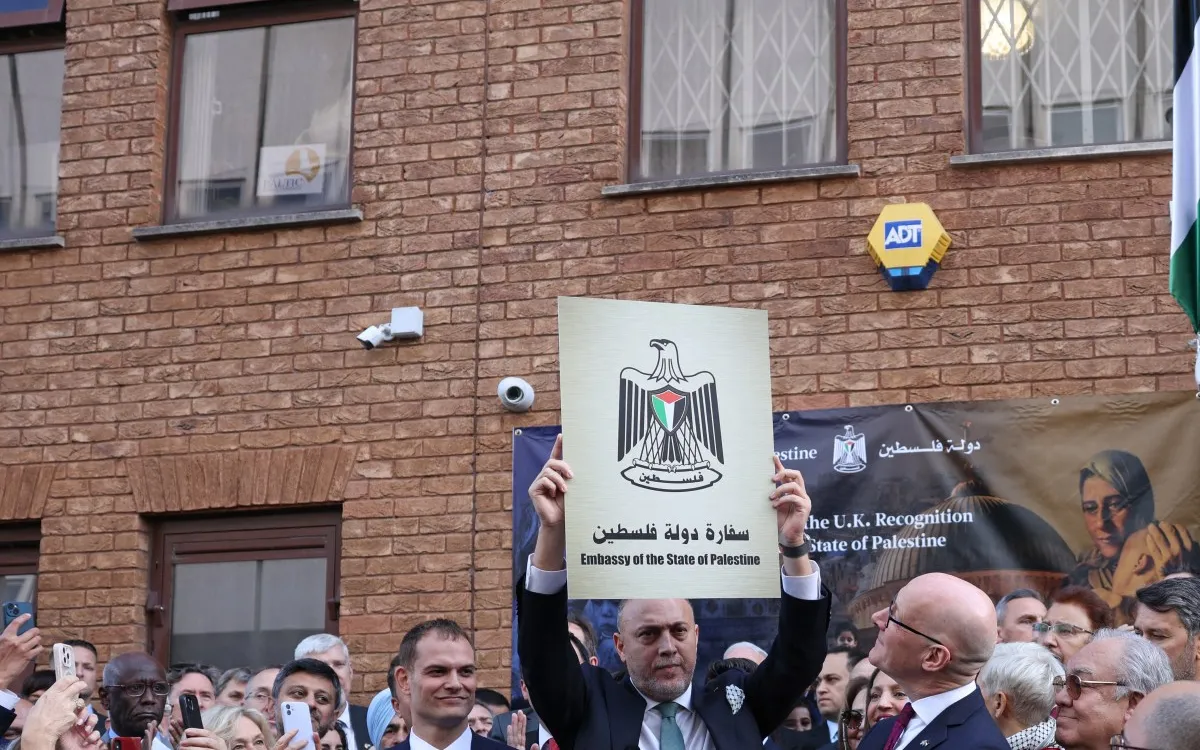
In a significant move during the 80th session of the General Assembly (UNGA), several European nations, including France, Luxembourg, Malta, Monaco, Andorra, and Belgium, have formally recognized the State of Palestine. These countries join the ranks of Canada, Australia, Portugal, and the United Kingdom, which announced its recognition shortly before. This shift comes at a time when Israel is advancing its settlement expansion in the occupied West Bank and intensifying military actions in Gaza.
The UK’s decision to formally recognize a Palestinian state marks a pivotal moment, occurring over a century after the Balfour Declaration that supported the establishment of a national home for the Jewish people in Palestine. In a video statement released on Sunday, UK Prime Minister Keir Starmer expressed the need to act amid the escalating violence in the Middle East, emphasizing the importance of preserving the opportunity for peace and a viable two-state solution.
The formal declarations by these major Western powers highlight a growing international isolation of Israel, especially in the context of a devastating war in Gaza that has resulted in the deaths of over 65,000 Palestinians. Currently, the State of Palestine is recognized as a sovereign nation by 157 out of 193 UN member states, constituting approximately 81% of the global community. Additionally, the Holy See, which represents the Catholic Church and Vatican City, also recognizes Palestine, further legitimizing its status in the international arena.
Recognizing Palestine significantly enhances its global standing and boosts its ability to hold Israeli authorities accountable for their actions in the occupied territories. It increases pressure on Western nations to pursue a genuine two-state solution. Specifically, this recognition would allow Palestinians to:
Open embassies with full diplomatic status Engage in trade agreements Gain support at international forums Approach the International Criminal Court (ICC)However, it is essential to note that recognition will not:
End the ongoing war in Gaza Stop Israel’s military occupationWhile recognition may not lead to immediate changes in Israeli policy, it reflects a growing wave of international support for Palestinian statehood. Martin Griffiths, director of Mediation Group International, remarked to Al Jazeera that this recognition is merely a first step. He stressed the need for countries like the UK to fulfill their obligations under the International Court of Justice by facilitating humanitarian aid, halting arms sales, and easing blockades while also supporting reforms within the Palestinian Authority.
Together with Mexico, these countries represent 11 new recognitions in 2025 and the 20th since the onset of Israel's war on Gaza in October 2023. This growing wave of recognition underscores a shift in international politics regarding Palestinian rights.
In response to this wave of recognition, Israel’s UN ambassador, Danny Danon, condemned the UN summit on Palestinian statehood as a "circus" and labeled the recognition of Palestine as rewarding terrorism. Israeli Prime Minister Benjamin Netanyahu echoed this sentiment, characterizing the UK’s recognition as a “prize” for Hamas and asserting that a Palestinian state “will not happen.”
The journey toward recognition of a Palestinian state began on November 15, 1988, when Yasser Arafat, chairman of the Palestine Liberation Organization (PLO), declared the establishment of an independent State of Palestine, with Jerusalem designated as its capital. More than 80 countries swiftly extended recognition, primarily from the Global South, including nations in Africa, Asia, Latin America, and the Arab world. Notably, most European recognitions at that time came from states within the former Soviet bloc.
On September 13, 1993, the Oslo Accords facilitated the first direct negotiations between Palestinians and Israelis, envisioning a Palestinian state alongside Israel. Unfortunately, this envisioned outcome has not come to fruition. In 2012, the UNGA voted overwhelmingly to upgrade Palestine’s status to a “non-member observer state”, allowing it to participate in debates but not vote on resolutions. This status reflects the limitations placed on Palestine by the UN Security Council (UNSC), where only the five permanent members—US, Russia, China, France, and UK—hold veto power.
On April 18, 2024, the US vetoed a widely supported resolution in the UNGA that sought to grant Palestine full UN membership, despite broad international support. This reflects a longstanding trend, as the US has vetoed UNSC resolutions critical of Israel at least 50 times since joining the UN, often obstructing measures aimed at addressing Israeli military actions, illegal settlements, or the occupation of Palestinian land.